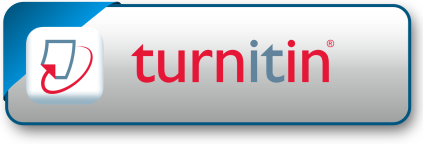KONDISI EKSISTING TAHUN 2016 PELAYANAN RUSUNAWA RAWA BEBEK DI DKI JAKARTA
DOI:
https://doi.org/10.24853/swatantra.15.1.%25pAbstract
Public service in Indonesia is known to be of poor quality. This applies also for services of regional government for residents of leased flats (Rusunawa) especially those who were from relocation programs. DKI Jakarta Provincial Government relocates citizens to live in leased flats in order to manage urban development to increase prosperity of DKI Jakarta citizens. This involved restructuring of government land illegally occupied by citizens where the citizens do not have the land certificates. These citizens are relocated to low-cost leased flats (Rusunawa) in Rawa Bebek. Citizens hurt by forced relocations even under threats need good service to be able to live in Rusunawa Rawa Bebek, this community must be able to adapt from living in the old horizontal place to the new vertical place. Of course, there are many problems faced by Flats Management Unit (UPRS) regarding the relocated low-income citizens. Other than that, the flats were new buildings that have not been occupied before. These problems arised from the residents, buildings, managers and the surroundings. Aims of the research are 1) to analyse the exis- ting conditions of services in Rusunawa Rawa Be- bek 2) to find supporting and impeding factors of services in Rusunawa Rawa Bebek. Analysis blade used are 14 elements of citizen satisfaction indicators to measure rusunawa residents’ satisfactions: Service Procedures; Service Requirements; Clarity of the names and parts of the job; Officer discipline; Officer responsibility; Officer ability; Officer Responsiveness; Service fairness; Officer CourtesyKeywords: service quality, RusunawaDownloads
Published
Issue
Section
License
Copyright aims to protect the specific way the article has been written to describe an experiment and the results. SWATANTRA is committed to its authors to protect and defend their work and their reputation and takes allegations of infringement, plagiarism, ethical disputes, and fraud very seriously. SWATANTRA is published under the terms of the Attribution-NonCommercial 4.0 International (CC BY-NC 4.0). Authors retain copyright and grant the journal right of first publication (online and print) with the work simultaneously. We use the restrictive license (non-commercial) as follows:
BY (attribution): Users are allowed to share, distribute and redistribute the published article in any medium or format, with an identification of the authors and its initial publication in this journal. Authors are encouraged to post and distribute their articles immediately after publication (e.g., institutional or public repositories, personal websites). Authors are allowed to enter into additional contractual arrangements for the non-exclusive distribution of the published and an acknowledgment of its initial publication in this journal.
NC (non-commercial): Users are not allowed to use the article commercially without the permission of the authors. Authors agree explicitly that the published article is indexed worldwide in databases, repositories, and indexation services, even if these services operate on a commercial basis. Authors grant SWATANTRA explicit the right to include the published articles in databases, repositories, and indexation services. You can see examples of personal and commercial use on this link.
Below you may find the full text of the license signed by authors.
License
- License to Publish
The non-commercial use of the article will be governed by the Attribution-NonCommercial 4.0 International (CC BY-NC 4.0). The author hereby grants SWATANTRA an exclusive publishing and distribution license in the manuscript include tables, illustrations, or other material submitted for publication as part of the manuscript (the “Article”) in print, electronic, and all other media (whether now known or later developed), in any form, in all languages, throughout the world, for the full term of copyright, and the right to license others to do the same, effective when the article is accepted for publication. This license includes the right to enforce the rights granted hereunder against third parties.
- Author’s Warranties
The author warrants that the article is original, written by stated author/s, has not been published before, contains no unlawful statements, does not infringe the rights of others, is subject to copyright that is vested exclusively in the author and free of any third party rights, and that any necessary written permissions to quote from other sources have been obtained by the author(s).
- User Rights
Under the Creative Commons Attribution-Non Commercial 4.0 International (CC BY-NC 4.0) license, the author(s) and users are free to share (copy and redistribute the material in any medium or format) and adapt (remix, transform, and build upon the material). Users must give appropriate credit, provide a link to the license, and indicate if changes were made.
- Rights of Authors
Authors retain the following rights:
- Copyright, and other proprietary rights relating to the article, such as patent rights,
- The right to use the substance of the article in future own works, including lectures and books,
- The right to reproduce the article for own purposes, provided the copies are not offered for sale, and
- The right to self-archive the article.
- Co-Authorship
If the article was prepared jointly with other authors, the signatory of this form warrants that he/she has been authorized by all co-authors to sign this agreement on their behalf, and agrees to inform his/her co-authors of the terms of this agreement.








